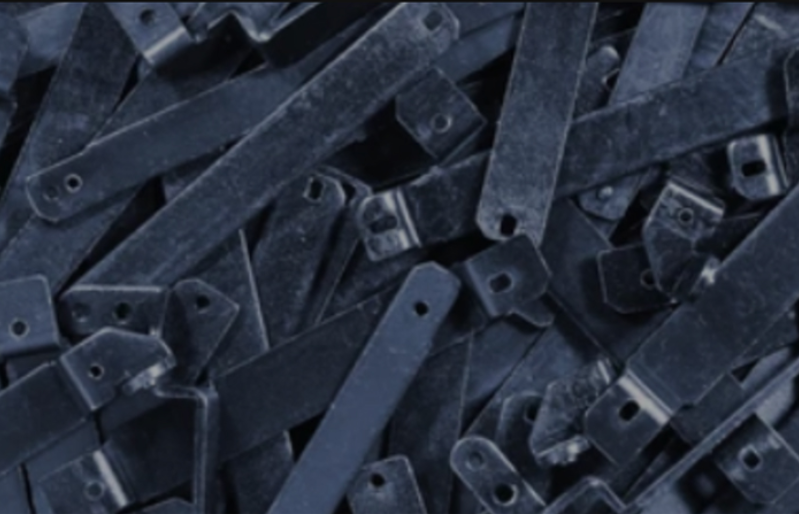Introduction:
Aluminum is a versatile material widely used in various industries due to its excellent combination of strength, lightweight, and corrosion resistance. However, aluminum’s natural oxide layer is not thick enough to provide optimal protection against corrosion. To enhance its corrosion resistance and surface adhesion, aluminum conversion coatings are applied. This article aims to explore the concept of aluminum conversion coatings, their benefits, and the various types commonly used in industrial applications.
Understanding Aluminum Conversion Coatings:
Aluminum conversion coatings, also known as chemical conversion coatings or conversion layers, are thin, chemically generated protective coatings applied to the surface of aluminum alloys. These coatings interact with the metal surface to form a chemically bonded layer that enhances corrosion resistance, improves paint adhesion, and provides a suitable base for subsequent surface treatments.
Benefits of Aluminum Conversion Coatings:
1. Corrosion Resistance: The primary purpose of aluminum conversion coatings is to protect the metal from corrosion. They act as a barrier between the aluminum substrate and the environment, significantly extending the material’s lifespan in harsh conditions.
2. Paint Adhesion: Conversion coatings improve the adhesion of paints and coatings to aluminum surfaces. This ensures a better finish and longer-lasting protection against environmental elements.
3. Electrical Insulation: Certain types of conversion coatings can provide electrical insulation properties, making them suitable for applications where electrical conductivity must be minimized.
4. Aesthetic Appeal: Conversion coatings can also enhance the aesthetics of aluminum surfaces by providing a uniform, clean, and attractive appearance.
Types of Aluminum Conversion Coatings:
1. Chromate Conversion Coatings: Chromate conversion coatings, specifically hexavalent chromates, were widely used in the past due to their excellent corrosion resistance properties. However, due to environmental and health concerns, trivalent chromates and non-chromate alternatives are now more commonly used.
2. Phosphate Conversion Coatings: Phosphate conversion coatings are primarily used for improving paint adhesion and corrosion resistance. They are often applied in pre-treatment steps before painting or powder coating aluminum surfaces.
3. Titanium-Based Conversion Coatings: Titanium-based conversion coatings have gained popularity as an environmentally friendly alternative to chromate coatings. They provide excellent corrosion resistance and can be used for both decorative and functional purposes.
4. Zirconium Conversion Coatings: Zirconium conversion coatings are known for their exceptional adhesion and corrosion resistance properties. They are often used as a pre-treatment step before painting or bonding aluminum surfaces.
5. Organic Conversion Coatings: Organic conversion coatings, such as silanes and siloxanes, provide a thin, protective layer that improves both corrosion resistance and surface adhesion. They are commonly used as a pretreatment before adhesive bonding or as a stand-alone protective layer.
Application of Aluminum Conversion Coatings:
Aluminum conversion coatings are typically applied through immersion, spray, or brush methods. The process involves cleaning the aluminum surface, applying the conversion coating solution, and rinsing with water or other appropriate solutions. The specific application method and conversion coating type depend on the desired properties and the intended use of the aluminum substrate.
Conclusion:
Aluminum conversion coatings play a crucial role in enhancing the corrosion resistance and surface adhesion of aluminum alloys. With their ability to extend the material’s lifespan, improve paint adhesion, and provide a protective barrier, these coatings are essential for various industries. As environmental and health concerns continue to drive the development of alternative coatings, researchers are actively exploring new materials and application methods to further improve the performance of aluminum conversion coatings.
-

- Magnesium alloy die-casting Auto parts RDM housing
-

- OEM ڈائی کاسٹنگ کارخانہ دار میگنیشیم الائے آٹو ڈیش بورڈ تیار کرتا ہے۔
-

- مینجینسیم الائے ڈائی کاسٹنگ تھیکسومولڈنگ میٹل بریکٹس
-

- اعلی صحت سے متعلق میگنیشیم تھیکسومولڈنگ اجزاء UAV کور
-

- بائیسکل فری ہب 12/14/16 انچ چلڈرن بائیک لو رائیڈر بائیکس میگنیشیم ایلومینیم الائے بچوں کی بائیسکل 3-8 سال پرانی ان اسٹاک میں
-

- CNC مشینی حصے اسٹیئرنگ بریکٹ

 0086-750-5616188
0086-750-5616188 +86 13392089688
+86 13392089688 sales@zhongmei-tech.com
sales@zhongmei-tech.com








